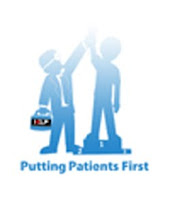How to be a patient advocate
Posted On Sunday, August 24, 2008
http://www.timeswellness.com/index.aspx?page=article§id=27&contentid=2008082420080824003443730bdda275c
By: Dr Aniruddha Malpani
Abroad, patient advocates is a professionally run service. Maybe its that that India too starts looking at providing this service to patients, who till date have had to rely on friends and relatives to fulfil this role.
When you are ill, you are vulnerable, and you need someone to stand up for you. While usually this person is your family doctor, his role is limited to providing you with the right medical treatment. And, unfortunately, most of us don’t even have a family doctor today. This where a patient advocate can come in! This is a very broad title that encompasses many types of services for patients and while most advocacy in India is done by friends and relatives, there are many professionals and organizations in the US who provide patient advocacy services for a fee. These include – Lynx Care, Patient Pal, Health Advocate and Patient Advocate Foundation. Many hospitals in the US now have full-time patient advocates. These staff members act as representatives for patients; and help to resolve grievances and improve communication with the medical staff. They are the equivalent of an ombudsman, and act as a bridge between patients and hospital staff.
In India, the word advocate is synonymous with a lawyer, which means it usually has a negative connotation. However, to become a health advocate, you do not need to a get a LLB! Remember that the word advocacy means someone who champions a cause; and an advocate is someone who fights for your cause.
It's helpful to have someone at your bedside in the hospital to make sure overworked nurses notice if your vital signs are going downhill or to ensure that the right medications are given at the right time. It is good to have someone who can get on the Web and research your disease. And it's important to have someone to take notes during doctor visits and ask the questions you forget.
If someone is ill, how can you become a patient advocate for that person? This is actually something we do informally for friends and family members. Trisha Torry has as excellent website at http://www.everypatientsadvocate.com/index.htm which will show you how to do a better job!
Becoming informed and working as a partner with health care providers helps to insure that the best possible treatment and outcome will be achieved. As an advocate, you will need to wear multiple hats. You need to learn to network with doctors; to coordinate appointments; to get specialists to talk to each other to organize a hospital bed; arrange for blood; buy medicines; fill in medical forms and insurance paperwork; and to act as a caregiver and provide moral and emotional support! This can be a tall order and a thankless job – but it’s well worth it, because your efforts can spell the difference between life and death. And all these skills can prove to be invaluable when you fall ill yourself!
A ‘patient advocate’ is a critical component of the healthcare team and a caregiver is in the best better position to know and understand the needs of a loved one. You already have all the skills you need to be a patient advocate. It does not require specialized medical training. All it takes are basic communication skills, the courage to do things differently and willingness to think through a problem.
Keep in mind that being a patient advocate is not an adversarial position. It doesn’t necessarily mean rushing out and getting a second opinion on every matter, or conducting your own research and confronting a healthcare professional with your findings.
This doesn’t mean you shouldn’t seek second opinions, or do your own research. On the contrary, this is often a wise approach. If you do decide to do your own research or obtain a second opinion, please speak with your doctor about it. Effective patient advocates do not breed discontent – they build and strengthen relationships.
What are some of the common mistakes a patient advocate may make?
1. Failure to get permission to act as a patient advocate.
2. Failure to recognize your loved one’s style.
3. Failure to recognize that behind every medical goal is a personal goal.
4. Plant seeds of mistrust between the patient and the doctor.
You need not be an advocate just for a friend or family member. You can reach out and touch many patients if you are willing to do so! Thus, if you suffer from a particular illness, you can set-up a support group to raise funds and help others; or a website to create more awareness about this illness. Many people also find volunteering in a hospital allows you to help those less fortunate than you – and helping others is a great way of helping yourself!
Subscribe to:
Post Comments (Atom)



No comments:
Post a Comment